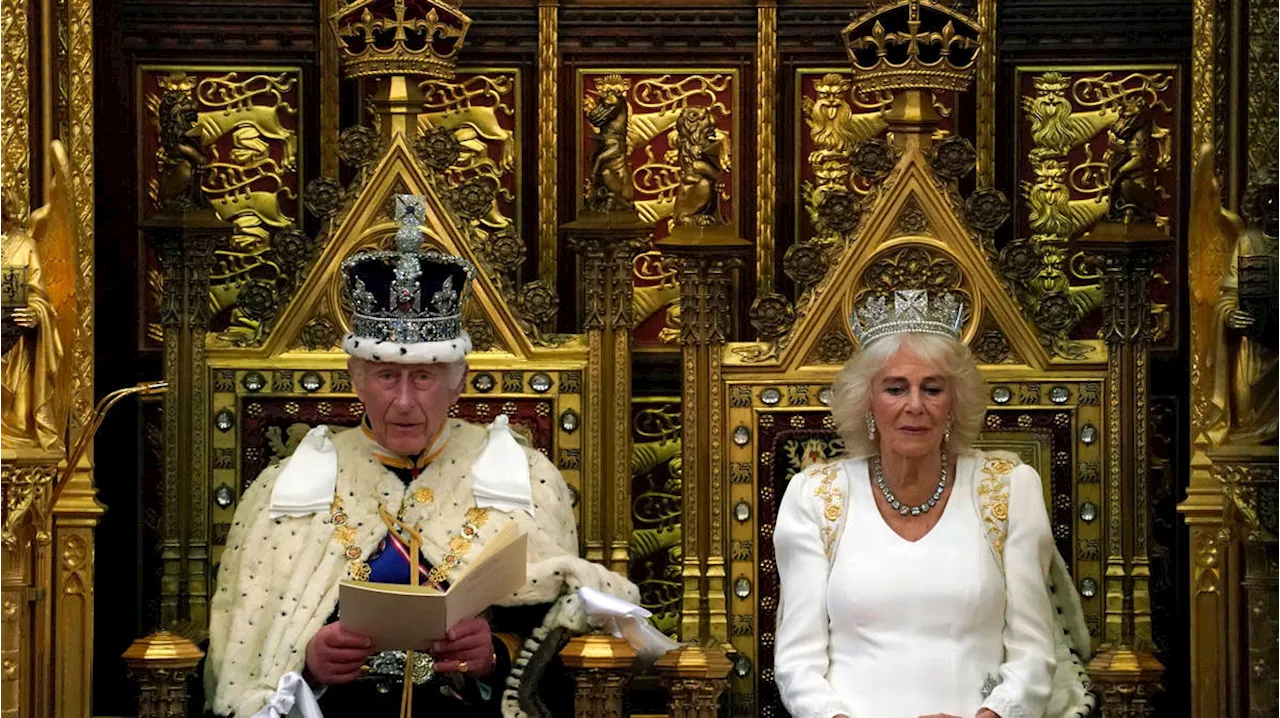The prime minister discussed ongoing tensions with Iran, his handling of Israel’s war against Hamas, and the humanitarian crises in Gaza.
Below is a transcript, lightly edited for clarity, of the interview between Netanyahu and TIME Correspondent Eric Cortellessa.
Well, we’ve been taking steps, I think the actions we took over the years have delayed Iran's enrichment, but it didn't stop it, and they're now close to being a threshold state, a nuclear state, when it comes to enrichment. There are other components of, other elements of making a nuclear weapon that they're still further away from. But I've committed—I’ve said it again and again—we'll do whatever we're able to do to prevent Iran from getting nuclear weapons.
Well I want to come back to that in a second, but I also want to ask you about something you said in 2019 at a Likud Party meeting. I want to read it for you. “Anyone who wants to thwart the establishment of a Palestinian state has to support bolstering Hamas and transferring money to Hamas. This is part of our strategy—to isolate the Palestinians in Gaza.”Never said that. Among the many mis-quotes that are attributed to me. This doesn't quite top the list, but it's close.
They actually made a point to say that that's not the case in Gaza. They said that it might affect the community overall, other parts of the, but they were quite specific that it didn't, didn't affect Gaza. But the more important thing is, I think that what really affected them, if anything, was the idea of someone refusing to serve. The refusal to serve because of an internal political debate.
After the assassinations of Shukr in Beirut and Haniyeh in Tehran, do you think there's still a chance for a hostage release deal? No, I don't think that. And I think there's a vast consensus in Israel that if we did that, we'll just have a repetition. There’ll be future hostage taking, there'll be a future October 7, and actually worse things that could happen. So we have to achieve both goals, achieve the release of all the hostages and win the war. And I believe it's possible.
Mr. Prime Minister, obviously, we should have no illusions about the enemy you face and the tactics they use. Hamas deliberately embeds its military infrastructure and weapons depots inside densely populated civilian areas. And of course, this all started on October 7. But in your estimation, how many Gazans have been killed in this war, and how many were civilians versus combatants?
We did. That's completely contrary to the fact. Of course we did. We created humanitarian zones and safe zones right away and people moved there. That’s not true. We've gone out of our way to enable humanitarian assistance since the beginning of the war, we enabled some 40,000 aid trucks to come in. That's 500, half a million tons of food, okay, half a million tons. We paved roads to enable those trucks to go in. We opened land crossings to enable those trucks to go in. We allowed airdrops. We allowed sea transport.
As Prime Minister and as head of the war cabinet, do you accept responsibility for the treatment of Palestinian prisoners? Well, speaking of those who are being investigated, I want to ask you about what happened at Sde Teiman. After a Palestinian detainee was rushed to the hospital with severe wounds to his anus after being sexually assaulted with a pole, far-right protesters, including some lawmakers, stormed a detention center to protest the arrest of nine alleged suspects. How will they be held accountable?
Has Ben Gvir created an atmosphere of permissive violence against Palestinian prisoners? Should he resign or be fired? I want to shift to your vision for a post-war Gaza. You've described total victory as achieving three things: Number one, destroying Hamas's military infrastructure and removing it from power. Number two, liberating the hostages. Number three, installing a new civilian Palestinian governing entity that can rule over Gaza and not threaten Israel. The Israeli military has a plan for number one.
In the past, you had talked about “state minus” for Palestinians, or “autonomy plus.” But can you explain why the end point to resolving this conflict is not a Palestinian state? President Biden told TIME last spring that people should have “every reason to believe” that you are prolonging the war for your own political self preservation. How do you respond?
No, I think that they won't succeed, because once we win, I think things will fall in place, and actually, the Saudi deal will become more likely. In any case, I haven't given up on the deal. I was—That says something about the world, not about Israel.
Look, all Israeli governments have been based in parliamentary systems are based on coalitions. Everyone's done it. Previous governments even made a coalition with a party that is affiliated with the Muslim Brotherhood and rejects the very survival of Israel. I didn't hear any criticism about that. But one thing I can assure you, I run the show, I make the decisions. I formulate the policy.
Smotrich once said that you are, as he said, “with us full on” when it comes to his West Bank annexation plans. Is he wrong? I want to talk about the U.S.-Israel relationship. There may be two things that are most essential for securing Israel's long-term survival. First and foremost, the will and the resilience of the Israeli people. Second, sustained bipartisan support for Israel in Washington.
You got 57 standing ovations last week, but nearly 130 Democrats skipped your speech, including Kamala Harris, who's one of two people who will be the next president. Why should Israelis trust you to maintain bipartisan support for Israel in Washington? American college campuses were overtaken this spring with protests against Israel's war in Gaza. Polls find that young people sympathize more with the Palestinians. Are you losing the support of the next generation of Americans, including Jews?
First of all, I was very glad to have the opportunity to speak with her, as I did with President Biden and with President Trump. She spoke about her support for Israel. That doesn't mean that we don't have disagreements. I've had disagreements with the American presidents. I have had many agreements with them at the same time.
If an opposition leader presided over the worst security failure in Israel's history, would you say they should stay in power? I know we’re coming to the end. I want to get to the last few questions. Former Prime Ministers Yitzhak Rabin, Shimon Peres, Ehud Barak, even Ariel Sharon, all said that Israel needed to allow for the establishment of a Palestinian state to preserve the Zionist ideal of remaining a Jewish-majority democracy. Do you agree with that?
United Kingdom Latest News, United Kingdom Headlines
Similar News:You can also read news stories similar to this one that we have collected from other news sources.
King's Speech transcript: Full text of monarch's address in ParliamentTHE King’s Speech was the longest monarch’s speech at a State Opening of Parliament in more than two decades ...
Read more »
 Read in Full: King Charles's speech delivering Keir Starmer's vision for BritainMy Lords and Members of the House of Commons.
Read in Full: King Charles's speech delivering Keir Starmer's vision for BritainMy Lords and Members of the House of Commons.
Read more »
 Read in Full: Gareth Southgate's emotional statement resigning as England managerAs a proud Englishman, it has been the honour of my life to play for England and to manage England. It has meant everything to me, and I have given it my all.
Read in Full: Gareth Southgate's emotional statement resigning as England managerAs a proud Englishman, it has been the honour of my life to play for England and to manage England. It has meant everything to me, and I have given it my all.
Read more »
 Marc Marquez set for all-star Race of Champions at his first World Ducati WeekFull entry list and full schedule for World Ducati Week and Race of Champions
Marc Marquez set for all-star Race of Champions at his first World Ducati WeekFull entry list and full schedule for World Ducati Week and Race of Champions
Read more »
 Read this before you buy an iPad on Prime DayJoe is a regular freelance journalist and editor at Creative Bloq. He writes news, features and buying guides and keeps track of the best equipment and software for creatives, from video editing programs to monitors and accessories.
Read this before you buy an iPad on Prime DayJoe is a regular freelance journalist and editor at Creative Bloq. He writes news, features and buying guides and keeps track of the best equipment and software for creatives, from video editing programs to monitors and accessories.
Read more »
 Team GB swimmer Benjamin Proud ‘lost all faith’ before Paris OlympicsBenjamin Proud prepares to make his mark in the men’s 50 metre freestyle final at the Paris Olympics, after almost quitting the sport following a tough time in Tokyo 2020
Team GB swimmer Benjamin Proud ‘lost all faith’ before Paris OlympicsBenjamin Proud prepares to make his mark in the men’s 50 metre freestyle final at the Paris Olympics, after almost quitting the sport following a tough time in Tokyo 2020
Read more »
